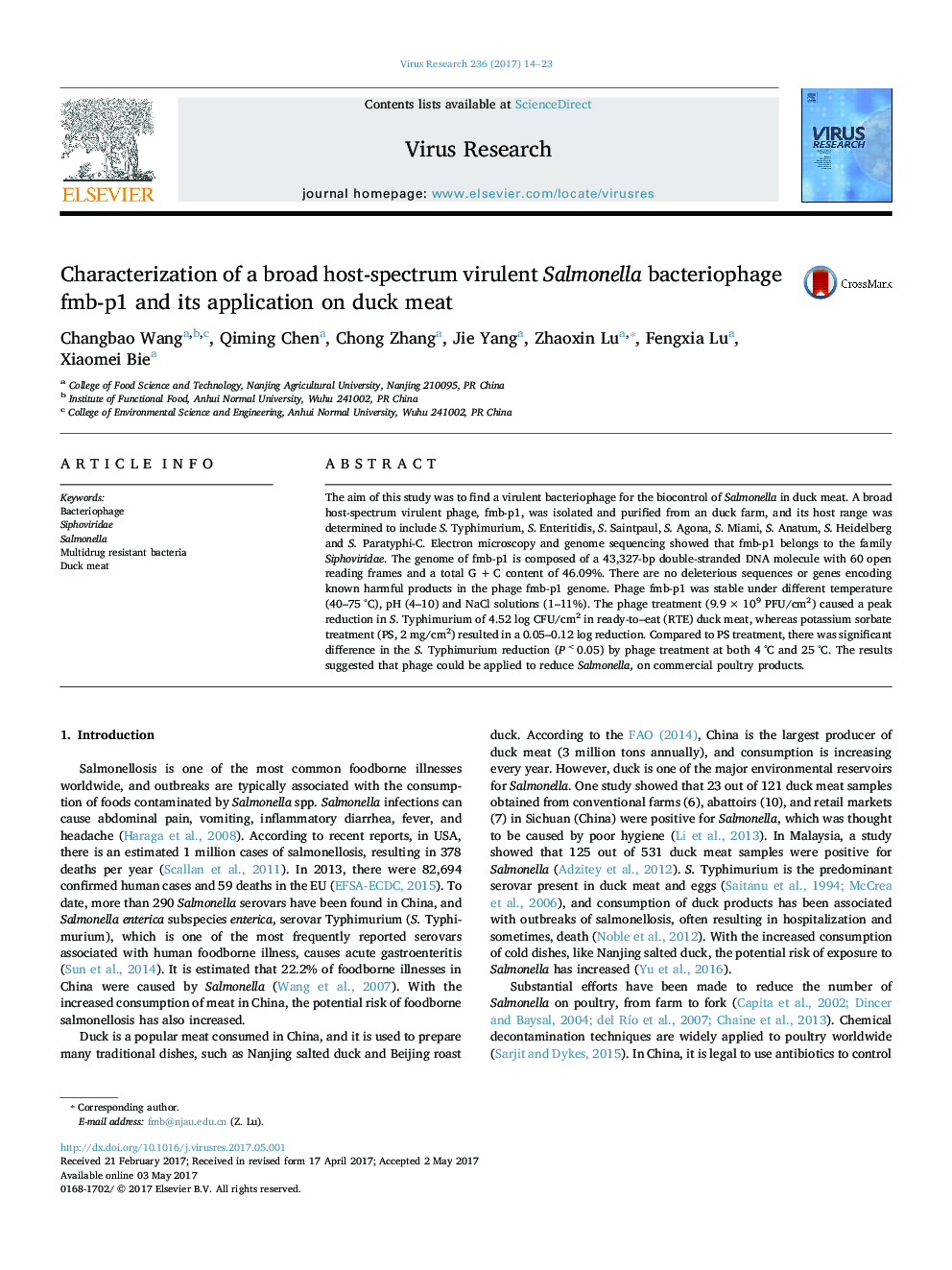| Article ID | Journal | Published Year | Pages | File Type |
|---|---|---|---|---|
| 5675338 | Virus Research | 2017 | 10 Pages |
Abstract
The aim of this study was to find a virulent bacteriophage for the biocontrol of Salmonella in duck meat. A broad host-spectrum virulent phage, fmb-p1, was isolated and purified from an duck farm, and its host range was determined to include S. Typhimurium, S. Enteritidis, S. Saintpaul, S. Agona, S. Miami, S. Anatum, S. Heidelberg and S. Paratyphi-C. Electron microscopy and genome sequencing showed that fmb-p1 belongs to the family Siphoviridae. The genome of fmb-p1 is composed of a 43,327-bp double-stranded DNA molecule with 60 open reading frames and a total G + C content of 46.09%. There are no deleterious sequences or genes encoding known harmful products in the phage fmb-p1 genome. Phage fmb-p1 was stable under different temperature (40-75 °C), pH (4-10) and NaCl solutions (1-11%). The phage treatment (9.9 Ã 109 PFU/cm2) caused a peak reduction in S. Typhimurium of 4.52 log CFU/cm2 in ready-to-eat (RTE) duck meat, whereas potassium sorbate treatment (PS, 2 mg/cm2) resulted in a 0.05-0.12 log reduction. Compared to PS treatment, there was significant difference in the S. Typhimurium reduction (P Ë 0.05) by phage treatment at both 4 °C and 25 °C. The results suggested that phage could be applied to reduce Salmonella, on commercial poultry products.
Related Topics
Life Sciences
Immunology and Microbiology
Virology
Authors
Changbao Wang, Qiming Chen, Chong Zhang, Jie Yang, Zhaoxin Lu, Fengxia Lu, Xiaomei Bie,
